Duke of Edinburgh International Award Opportunities
Physial Recreation
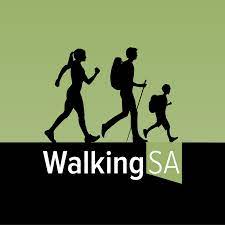
Find a place to walk
With over 700 trails listed, find a place to walk, hike or bushwalk across South Australia. From a 1 hour walk near your home with your dog, to a half day hike in a national park, or a longer trail further afield, you’re only ever two feet from some of the best places in South Australia.
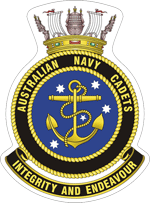
The ANC’s vision is to provide an environment and opportunities to develop young Australians (13-18 years) to become capable, confident and resilient members of their communities.
https://www.navycadets.gov.au/
The ANC delivers safe, challenging and meaningful experiences and maximises the use of Royal Australian Navy watercraft and Navy ships.
Our mission is to help young Australians to develop those qualities which will allow them to grow into citizens who contribute effectively and positively to our society.
Skills
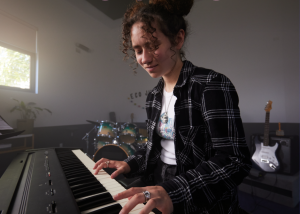
Learn a Musical Instrument
Find a music teacher.
Music can benefit you in many areas – language, maths, concentration and social skills, just to name a few! So try to experience music making as much as possible and enjoy the many benefits!
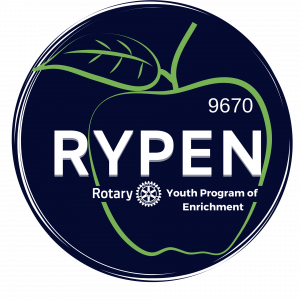
RYPEN is Rotary’s introductory leadership training program for youth aged 15 to 17. Students spend the weekend at a live-in leadership seminar with other future leaders from around the state.
Rotary Youth Leadership Awards (RYLA) is an intensive leadership experience organized by Rotary clubs and districts where you develop your skills as a leader while having fun and making connections.
Voluntary Service
“Being in the Award has helped me to hold my head higher and be more independent. I now have pride in myself and all that I have achieved.”
Travis Green, Participant
Expedition/Exploration
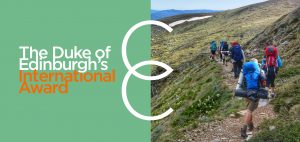
Participants must meet the following 14 requirements.
Participants must:
1. Have a clearly defined and agreed Team Goal for each journey and have it approved by the Assessor or Award Leader. The Team Goal is to be in the SMART Goal format, describing an overall purpose such as exploring an area, a research project, a physical challenge. (SMART stands for Specific, Measurable, Achievable, Relevant, and Time-bound)
2. Undertake preparation and training which is relevant to their planned journeys and skill level. Note that sufficient and appropriate preparation and training is required at each level of the Award to ensure all journeys are undertaken with confidence by the Participants.
3. All members of the group must be involved with the planning and training, including those not undertaking the Adventurous Journey as Duke of Ed Participants.
4. Ensure they discuss and obtain approval from their Award Leader prior to commencing this Section. This includes preparation and training, all Practice Journeys, and the Qualifying Journey. Note that activities such as tourist-style trips, family holidays, and some school camps are not appropriate – see 6.17 for more information.
5. Obtain written parent/guardian consent prior to departing on each journey if under the age of 18.
6. Be supervised and also assessed by suitably skilled, experienced, or qualified people.
7. Ensure there are a minimum of 4 Participants in each Adventurous Journey group (with a maximum of 7). Groups larger than 7 must be split into smaller sub-groups. Participants must identify themselves with their sub-group for all activities related to the journey. Note that the AOA (Division) may allow non-Participants to make up group numbers where circumstances require.
8. Endeavour to undertake the Adventurous Journeys with peer group equals who will make decisions together.
9. Ensure that both the Practice and Qualifying Journeys are undertaken on land, or in or on water, in a substantially unfamiliar and challenging environment (physical or virtual) and: a. are of a similar nature (e.g. terrain and climate conditions) and difficulty; b. are in a similar environment (but not over the same route); c. use the same mode or combination of modes of travel, e.g. canoeing, walking etc. (See 6.9 and 6.11 for more information); and d. require substantial individual effort in the journeying.
10 Undertake sufficient Practice Journeys to ensure that the Qualifying Journey is able to be safely undertaken. See 6.10.
11 Only use simple/basic self-catering accommodation, e.g. shelters, tents, hostels, and be largely self-sufficient throughout the journey. Overnight accommodation at home for extenuating reasons, e.g. for medical/health reasons, requires prior approval of the Award Operating Authority (Division) and verification by the NAO Office.
12 Ensure that the Qualifying Adventurous Journey meets the minimum time requirements for the chosen level of the Duke of Ed as outlined in the Time Requirements table below.
13. Upon completion of the Qualifying Journey, a Journey Report is to be submitted or presented to the Assessor. Note that a log is required for both Practice and Qualifying Journeys.
14. Undertake activities substantially in their own time. This means that, while some activity may take place during school, university, custodial, or work hours, most of it should occur outside these scheduled hours, noting that Award Leaders should not determine ‘substantial’ based on a single activity, but take into consideration all the Participant’s activities being accredited using the Duke of Ed. See Glossary for the definition of ‘Substantial’.
Where to find support

Duke of Edinburgh’s International Award
As South Australia’s leading Outdoor Education Provider, Wilderness Escape understands the cross-curricular nature of education and the importance of active engagement. With the ability to tailor your program to address a range of Key Learning Areas.
Wilderness Escape utilises challenge and controlled risk as educational tools to assist students in reaching their full potential. Drawing on the experience of almost 30 years providing outdoor learning programs for Australian schools, we are industry leaders in adventure based and experiential learning


 Dof Ed Expedition Workbook
Dof Ed Expedition Workbook